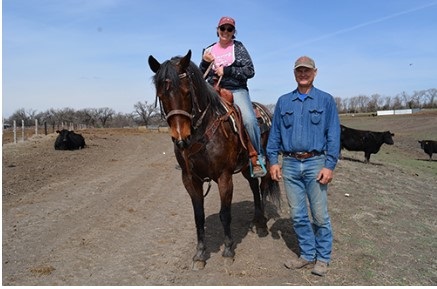WASHINGTON, D.C. – A failure to reach any consensus among cattle and beef organizations has stymied the passage of several pieces of proposed marketing reforms legislation that has been introduced over the last year and half.
This week in Washington was no exception as industry representatives weighed in on the U.S. House of Representatives passage of H.R. 7606, the Lower Food and Fuel Costs Act, on a 221-204 vote.
Included in the Act are the Meat and Poultry Special Investigator Act — also known as the Meat Packing Special Investigator Act and the Butcher Block Act to expand regional livestock and meat processing capacity.
Leading the opposition was the ranking member on the House Agriculture Committee, the North American Meat Institute, and the National Cattlemen’s Beef Association (NCA).
Rep. Glenn “GT” Thompson, R-Pa., said on the House floor he was voting against it because “this bill does nothing to lower food and fuel costs.”
Thompson continued, “Adding insult to injury, the White House has been quick to blame the private sector and alleged industry concentration for the current crises. Economists across the spectrum, including former Obama and Clinton administration officials, have dismissed the strategy as misleading, at best, or otherwise blatantly political.”
“So, it is not surprising that at the behest of the White House, we are debating a package whose anchor piece of legislation perpetuates a tired narrative of blame, duplicates existing authorities, ignores industry and producers, and undermines the Department of Justice.
“It’s also not surprising the party of ‘defund the police’ has also become the party of more cops for cows.”
Support for the legislation has come from the National Farmers Union (NFU) and U.S. Cattlemen’s Association (USCA).
NFU President Rob Larew praised the House action. “Now that the House has taken this important step forward, we encourage the Senate to send this to President Biden swiftly.”
USCA President Brooke Miller applauded the bipartisan effort to enhance national food security through several key provisions:
“The Meat and Poultry Special Investigator Act will bring much needed resources to the U.S Department of Agriculture to fight corruption in the meat and livestock industry. As independent processing capacity increases from an infusion of financial resources and technical support provided by the Administration, we will need watchful eyes at USDA to ensure that the multinational meat giants compete fairly in the marketplace.
“Finally, the Butcher Block Act – included in the package of bills – will provide more opportunities for our small and mid-sized processors to succeed in a business with incredibly high barriers to entry. Through cost-share and grant programs, this bill expands regional processing capacity, which increases competition in the meat packing industry – leading to improved marketing options for livestock producers.
But NCBA expressed strong disappointment in the House passage of the Lower Food and Fuel Costs Act.
“Rising food, fuel, and fertilizer prices are hurting cattle producers around the country, but Congress is relentlessly focused on political posturing through this special investigator bill,” said NCBA Vice President of Government Affairs Ethan Lane. “NCBA strongly supports fairness and transparency in the market, but Congress is wasting time with legislative proposals in search of a problem while ignoring real issues impacting cattle producers.”
He continued, “The special investigator section of the Lower Food and Fuel Costs Act would create a new position at the U.S. Department of Agriculture (USDA) to investigate broad “anticompetitive” matters. Unfortunately, this position duplicates the work of numerous federal investigative agencies-including the USDA Packers and Stockyards Division, Department of Justice, Federal Bureau of Investigation, Federal Trade Commission, and Department of Homeland Security-who have existing authority, staff, and budget to investigate anticompetitive actions.”
Lane added, “This bill is also unfunded, which will divert critical resources away from the Agricultural Marketing Service of USDA at the expense of critical programs producers rely on like market data reporting, meat grading, and the Cattle Contract Library pilot program.”
This bill now goes to the Senate for consideration.












